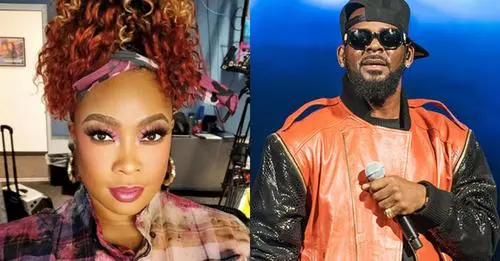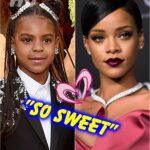The music industry and fans worldwide continue to grapple with the complexities surrounding R. Kelly’s legacy, and recently, rapper Da Brat has added her voice to the mix, sparking further debate. In a candid interview, Da Brat revealed that she refuses to mute R. Kelly and continues to listen to his music, adding a controversial perspective to an already divisive issue.

Da Brat, a seasoned artist with hits spanning decades, has never been one to shy away from speaking her mind. Her admiration for R. Kelly’s musical genius is evident. While she acknowledges the allegations and legal issues surrounding the R&B singer, she believes that his music and personal life should be viewed separately.
She stated, “When I listen to a song, I’m appreciating the art, the creativity. It’s not an endorsement of the artist’s personal life or choices.” Da Brat’s sentiment is shared by a segment of listeners who feel that while R. Kelly’s actions are indefensible, his music remains a significant part of pop culture.
However, it was her comment, “Where were the parents in all this?” that ignited a firestorm of reactions. Critics argue that such a statement deflects blame and minimizes the gravity of the allegations against R. Kelly. They believe that focusing on the role of the parents rather than holding the perpetrator accountable is a dangerous narrative.
Defenders of Da Brat argue that she’s merely echoing a question that many have privately pondered. They feel she’s highlighting a broader issue regarding the responsibility and role of guardians in protecting their children in the entertainment industry.
Social media platforms have been abuzz with discussions, debates, and hot takes on Da Brat’s comments. Some fans express disappointment, wishing she had chosen a more sensitive approach, while others applaud her for speaking her truth and raising uncomfortable questions.
Several artists and industry insiders have also weighed in. While some distance themselves from R. Kelly, emphasizing the importance of supporting survivors, others, like Da Brat, grapple with reconciling the man’s actions with his undeniable musical influence.
This issue brings to light the broader challenge of separating art from the artist. Can one appreciate the art while condemning the artist’s actions? And where does one draw the line?
Da Brat’s revelations also underscore the ongoing debate about cancel culture. Is muting an artist like R. Kelly the answer? Or does it erase important cultural contributions without addressing the root issues?
As the discussions rage on, one thing is clear: the music industry and fans alike are being forced to confront difficult questions about morality, responsibility, and the intersection of art and personal conduct.
In the midst of the controversy, Da Brat’s voice serves as a reminder that the R. Kelly saga is far from a black and white issue. It’s a complex tapestry of admiration, disappointment, and introspection that challenges the very core of how society consumes and critiques art.

